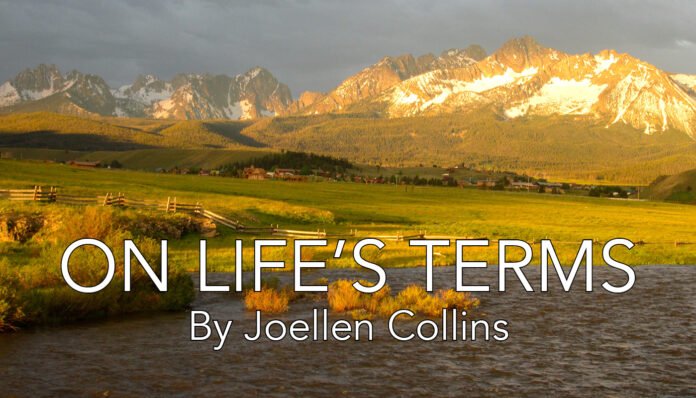BY JOELLEN COLLINS

Honestly, little white lies often seem apt choices in some situations. If a friend asks if one thinks her new haircut is cute (and it isn’t), what to say? I have a decades-old memory of a statement made when I walked over to my neighbor’s home to show off my new short bob. She took a quick look and shouted, “Who chopped off your hair!” I wasn’t upset with her response. I knew her and accepted her blunt way of speaking.
As one matures, gentle options develop in a friend’s repertoire of responses. If we care about others’ feelings, we learn not to be “brutally honest.” Perhaps we can find something positive and truthful to say about the cut, like “Ah ha! Now I can see your big blue eyes without hunks of hair falling over them,” or “‘You always look terrific,” or “How fashionable!” After years of practice, one can usually find a soft way to respond.
For most of my life I was a master of the kind little white lie. My excuse was that I didn’t want to hurt anyone’s feelings. However, as I have matured, I have been aware that my “disingenuous fibs” were designed to keep people liking me. God forbid that someone might be upset with me for my less than favorable reaction. I try now to be kind but truthful if someone solicits my opinion. It’s not always easy, and the challenge is when an honest response would indeed be insulting. In some cases, perhaps, it may be time to have a longer discussion about more serious issues when giving advice that might be uncomfortable. I have learned to ask if we should discuss this further or also find a truthful way to indicate that I am not an expert about a particular issue.
I may be more worried about not always avoiding the “little white lie” because I have been super-sensitive to criticism. If a teacher scolded me, I would have to fight crying over it. Now I can realize that it is my ego I am protecting by not being truthful, even in simple encounters. If I’m asked to volunteer for an organization I admire, I do not have to make up excuses for not being available: I can be truthful and say, “I’m sorry, but I just can’t help this time.” “So be it,” I can tell myself. I know I have stepped up as a volunteer hundreds of times in my long life and don’t have to waste time feeling guilty about my choices.
There may indeed be better ways to communicate in daily chit-chat than through minor social fibs. However, do I really need to respond when someone says to me, “Hi, how are you?” I could embark on a detailed and possibly unpleasant tirade about some ache from illness or my sadness at the state of the country, or I can just smile and say, “Fine, thank you,” possibly a useful little white lie.

